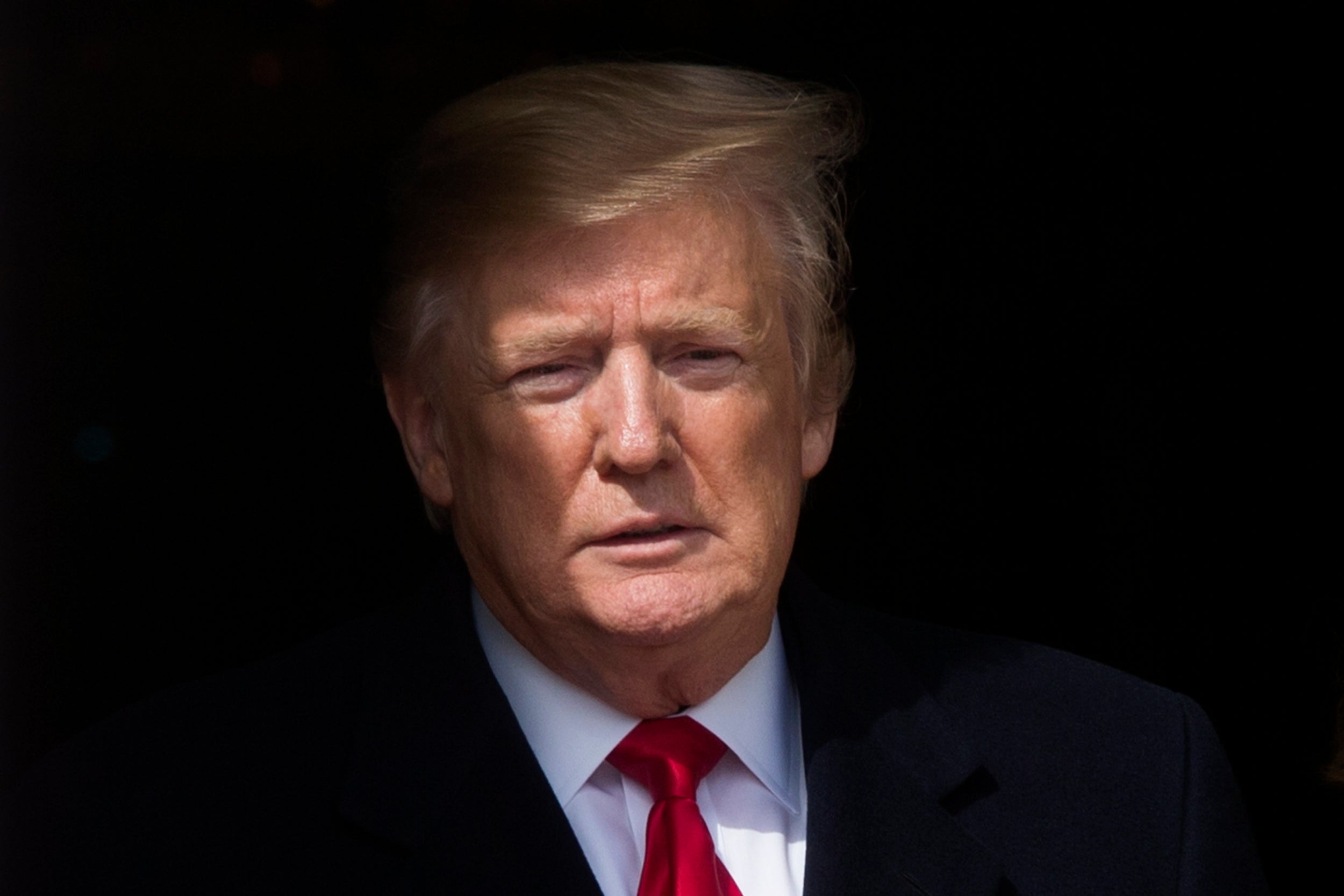I'm far from a Donald Trump fan — but don't call me an 'enabler' when I recognise what he's done right
We are not 'three tweets away from the Holocaust', so let's be brave enough to examine the president's policies on their own merits


Your support helps us to tell the story
From reproductive rights to climate change to Big Tech, The Independent is on the ground when the story is developing. Whether it's investigating the financials of Elon Musk's pro-Trump PAC or producing our latest documentary, 'The A Word', which shines a light on the American women fighting for reproductive rights, we know how important it is to parse out the facts from the messaging.
At such a critical moment in US history, we need reporters on the ground. Your donation allows us to keep sending journalists to speak to both sides of the story.
The Independent is trusted by Americans across the entire political spectrum. And unlike many other quality news outlets, we choose not to lock Americans out of our reporting and analysis with paywalls. We believe quality journalism should be available to everyone, paid for by those who can afford it.
Your support makes all the difference.President Trump is an enigma. It's difficult to imagine any other president creating political divisions the way he has since 2015. And that's just among Republicans and conservatives.
The Never Trump movement sprang up early in 2016 when a small percentage of Republican voters made clear they would not support Trump in the GOP primaries. For some, that extended to the general election against Hillary Clinton.
Fast forward, and the country is a little over two years into his presidency. Trump's most ardent supporters — those who were with him from the beginning and those who became staunch supporters after his election — are similar to Barack Obama's most ardent supporters. No matter what Trump does, they defend it. And what many see as character flaws, Trump's supporters love the most. They applaud his demeanor, his tweets attacking various enemies and, of course, his barbs against the mainstream media.
Elsewhere, many conservatives have chosen to take the time to criticise Trump where it's necessary but also accept the fact that he is the president and has a job to do.
Then there are those who have done a 180-degree turn from Trump’s hardcore base supporters and decided that nothing the president does can allow for praise.
If that's how they want to go throughout the Trump presidency, fine, but within that strain is a frustrating tendency to question the “principles” of Trump-critical conservatives who may commend Trump when he does something worth praising.
Tom Nichols, a professor at the Naval War College, in an appearance on Morning Joe, said the following: “There is no policy that I want enough to trade off the norms that we are destroying daily in the Trump administration. There is no judge; there is no policy; there is no tax cut. Nothing to me personally is worth what we're paying for.”
Tom's comment is one that earns accolades among the most virulent critics of Trump, particularly Democrats, but there's a critical flaw in his statement. The “worth it” question only works in the context of an upcoming election. People will ask themselves in November 2020, “Has what Trump accomplished made it worth voting for him?” and many will answer, “No.”
But in the here and now, the “worth it” scenario is a myopic way of examining the president. Trump may very well have faced allegations that he is corrupt and morally degenerate. But at the same time it makes little sense to pretend, as Kevin Williamson of National Review said, that we are “three tweets away from the Holocaust.”
Trump is not the first bad person to occupy the oval office, and he won't be the last. Are people willing to trade in any of the accomplishments of Woodrow Wilson and Richard Nixon because they were morally reprehensible and disrupted so many of the “norms” we associate with the presidency? Of course not.
That is why there is room within a Trump presidency to judge something he does from time to time independently. To do so does not turn critics into supporters — and doesn’t mean that the people doing the judging should stand accused of compromising their principles.
Trump's signing of The First Step Act illustrates this phenomenon. A Tennessee man, Matthew Charles, spent 21 years in prison related to a crack cocaine sentence in the 1990s. Released in 2016, he vowed to make a new life. Unfortunately, a mistake by the judge who signed off on Charles' release forced him to have to return to prison 18 months later. Once President Trump signed The First Step Act, the provisions allowed Charles to secure an immediate release.
That Trump signed the law has nothing to do with the fact he spouts xenophobic rhetoric, or that he urged his economic advisor Gary Cohn to lobby the Justice Department to block the AT&T/Time Warner merger. Matthew Charles is a free man today because of a law signed by Donald Trump and it's not a rejection of moral convictions and principles to say that's a good thing. Would Nichols and others of his ilk prefer Charles remain in prison?
The notion that one compromises their principles, loses their soul, or turns into a de-facto supporter of Donald Trump merely for agreeing with a law he signs or a Supreme Court appointment is nonsensical. The judgment of a presidency in the moment is not an all-or-nothing proposition. It's not an acceptance of the destruction of norms under Trump to look a sole issue and say, “I agree with that.”
What Nichols and others fail to recognize is that they're the opposite of the same coin as Trump's most ferocious defenders. They both throw reason and rationality out the window when it comes to discussing Trump. One side demands loyalty, and any deviation makes one a “traitor.” The other side demands opposition, and deviation causes one to “sell out” or at the very least to turn into an “enabler”.
It's not out of the realm of possibility to examine what Trump does on a day to day basis and judge it on the merits at that time. Others should try it — and not be afraid to criticise or praise the results.
Jay Caruso is the deputy editor of the Washington Examiner magazine
Join our commenting forum
Join thought-provoking conversations, follow other Independent readers and see their replies
Comments